June 2, 2021
Publications
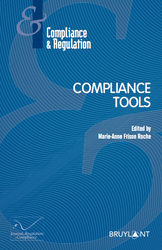
Full Reference: Frison-Roche, M.-A., Training: content and container of Compliance Law, in Frison-Roche, M.-A. (ed.), Compliance tools, series "Régulations & Compliance", Journal of Regulation & Compliance (JoRC) and Bruylant, 2021, p. 245-264
___
Summary of the article
Firstly, as Training is a specific Compliance tool, it is supervised by Regulators. It becomes mandatory when it is contained in Compliance programs or sanction decisions. Since effectiveness and efficiency are legal requirements, what is the margin of companies to design them and how to measure the result?
Secondly, as long as each Compliance tool includes, more and more, an educational dimension, we can take each of them to identify this perspective. So even condemnations and prescriptions are so many lessons, lessons given, lessons to be followed. The question is then to know who, in this so pedagogical Compliance Law, are the "teachers"?
____
This article is based on a bilingual Working Paper, including additional technical developments, pop-up notes and hypertext links.
Consult an overview of the volume in which the article was published.
____
June 2, 2021
Publications

Full reference: Frison-Roche, M.-A., Describing, conceiving and correlating compliance tools, in order to use them adequately, in Frison-Roche, M.-A. (ed.), Compliance Tools, series Regulation & Compliance, Journal of Regulation & Compliance (JoRC) and Bruylant, 2021, p. 9-32.
____
Summary of the article: The article is the general introduction to the book on Compliance tools. In its first part it develops the overall problematic. In its second part, it presents each of the contributions, placed in the overall construction of the work.
____
Read a general presentation of the book in which this article has been published.
June 1, 2021
Compliance: at the moment

May 5, 2021
Thesaurus : 08. Juridictions du fond
Référence complète : Paris, 5 mai 2021, Carrefour
____
La société Carrefour Hypermarchés commande et achète des produits référencés par sa centrale de référencement, Carrefour Marchandises Internationales (CMI), notamment ceux de la la société I2C. Or, le responsable du référencement des produits de cette société s'était vu offrir des voyages par ce fournisseur (certes avant l'établissement de la Charte éthique).
Un audit avait révélé cela après l'adoption de la charte. Par conséquent, la société CMI a mis fin à sa relation commerciale avec ce fournisseur.
Contestée sur l'allégation du caractère brutal de la rupture des relations commerciale, la Cour estime que cela est justifié car la violation de la charte éthique pouvait fonder la rupture immédiate des relations commerciales, indépendamment de leur date en raison de leur gravité.
- Voir dans le même rattachement à l'obligation de vigilance sur les manquements du fournisseur, justifiant la cessation immédiate de toutes relations commerciales :
- Paris, 13 mars 2019, Monoprix , n°17/21477 ;
- Paris, 24 mars 201, Promod, n°19/15565
________
May 5, 2021
Thesaurus : Doctrine
Full Reference : Akman, P., A web of Paradox: Empirical Evidences on Online Platform Users and Implications for Competition and Regulation in Digital Markets, Paper, June 2021.
Abstract (done by the author) :This article presents and analyses the results of a large-scale empirical study in which over 11,000 consumers from ten countries in five continents were surveyed about their use, perceptions and understanding of online platform services. To the author’s knowledge, this is the first cross-continental empirical study on consumers of online platform services of its kind. Among others, the study probed platform users about their multi-homing and switching behaviour; engagement with defaults; perceptions of quality, choice, and well-being; attitudes towards targeted advertising; understanding of basic platform operations and business models; and, valuations of ‘free’ platform services. The empirical evidence from the consumer demand side of some of the most popular multi-sided platforms reveals a web of paradoxes that needs to be navigated by policymakers and legislatures to reach evidence-led solutions for better functioning and more competitive digital markets. This article contributes to literature and policy by, first, providing a multitude of novel empirical findings and, second, analyzing those findings and their policy implications, particularly regarding competition and regulation in digital markets. These contributions can inform policies, regulation, and enforcement choices in digital markets that involve services used daily by billions of consumers and are subjected to intense scrutiny, globally.
April 21, 2021
Thesaurus : Doctrine
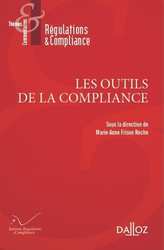
► Full Reference: S. Merabet, "La morale by design" ("Morality by design"), in M.-A. Frison-Roche (ed.), Les outils de la Compliance, coll. "Régulations & Compliance", Journal of Regulation & Compliance (JoRC) and Dalloz, 2021, p. 287-298.
____
📕read a general presentation of the book, Les outils de la Compliance, in which this article is published
____
► Summary of the article (done by the Journal of Regulation & Compliance): After having wondered about the relationship between Law and Morality, for which it is difficult to find points of contact, the author advances the hypothesis that the latter could find a space of concretization in the technology of artificial intelligence, even though many are worried about the deleterious effects of it. The author considering that Compliance is only a method while ethics would be the way in which morality is incorporated in a relaxed way in Law, the technology known as Artificial Intelligence could therefore express the moral rule ("compliance by design could be the appropriate tool to ensure the effectiveness of moral rules without falling into the excesses envisaged").
The author draws on examples to estimate that thus technology for on the one hand expressing the moral rule and on the other hand making it effective. The moral rule can thus be drawn up in a balanced way since it is jointly developed between the State and the economic operators, this collaboration taking the form of general principles adopted by the State using the means chosen by the company. Its content would also be characterized by the search for a "right balance", which would be found by this distribution between the primary moral principles whose expression would be the act of the State and the secondary moral principles whose expression would be delegated to companies.
Taking therefore what would be the principles of Compliance, the author applies them to Artificial Intelligence, showing that these technologies include not only the principle of neutrality but also the ethical principles of non-maliciousness, even of benevolence. (first principles) that companies then decline into secondary principles. Therefore, "compliance can usefully be used to convert these fundamental moral principles into derived moral rules, a source of greater effectiveness.".
Thus resulting in a "moral by design", the overall system has an additional effectiveness tool. This supposes that the fundamental and derived rules are of an acquired moral quality because for the moment the technological tool can only ensure their effectiveness and not the moral quality of the implemented rules. In determining the "moral rules of application", the company has margins of freedom, used through technological tools.
________
April 21, 2021
Publications

► Full Reference: M.-A. Frison-Roche, "Les droits subjectifs, outils premiers et naturels du Droit de la Compliance" ("Rights, primary and natural Compliance Tools"), in M.-A. Frison-Roche (ed.), Les outils de la Compliance, coll. "Régulations & Compliance", Journal of Regulation & Compliance (JoRC) and Dalloz, 2021, p. 301-323.
____
📝read the article (in French)
____
🚧read the bilingual Working Paper which is the basis of this article, with additional developments, technical references and hyperlinks
____
📕read a general presentation of the book, Les outils de la Compliance, in which this article is published
____
► Summary of this article (done by the Journal of Regulation and Compliance): In the traditional conception of the architecture of the sectors regulated by Law, and in Compliance Law which extends the regulatory techniques, rights have little place. But this configuration no longer takes place; on the contrary, rights are at the center of Regulatory and Compliance systems, and will be more and more so. They are and will be the primary tools of Compliance Law because they constitute a very effective "tool" to ensure the entire functioning of a system whose goals are so difficult to achieve. Because every effort must be done to achieve these goals, the public authorities not only rely on the power of crucial operators, but also distribute prerogatives to people and organizations who, thus encouraged, activate the Compliance system and participate in the achievement of the "monumental goal". Rights can prove to be the most effective tools for actually achieving the goals set, so much so that they can be seen as "primary tools".
But it is pertinent to have more pretension and to conceive rights as the most "natural" tools of Compliance Law. Indeed because all the Monumental Goals by which Compliance Law is defined can be expressed by the protection of persons, that is to say to the effectiveness of their prerogatives, by a mirror effect between rights. given as tools by Law by to persons and rights which constitute the very goal of all Compliance Law, in particular the protection of all human beings, even if they are in a situation of great weakness, rights becoming a "natural tool" of Compliance Law.
We are only at the beginning of their deployment and it is undoubtedly on them that Digital space in which we now live would be regulated, so that we will not suffocated there and that it will constitute for people a civilized space.
________
April 21, 2021
Publications

General reference : Frison-Roche, M.-A. (ed.), Les outils de la Compliance, series "Régulations & Compliance", Journal of Regulation & Compliance (JoRC) & Dalloz, 2021.
In parallel, the book is published in an English version Compliance Tools, co-edited by the Journal of Regulation & Compliance (JoRC) and Bruylant.
This book follows a cycle of conferences organized by the Journal of Regulation & Compliance and by its partner universities.
____
See the collection Regulation & Compliance in which the book has been published.
____
General presentation of the book : The political dimension of Compliance Law resides in the monumental goals that it aims for and which define it. These goals are internalized in "crucial operators", who willingly or by force must structure themselves and act to achieve "monumental goals", as set by public authorities and which may coincide with the interests of the enterprise. This one designs and controls the Ex Ante reorganization that this implies, under the public authorities supervision. Enterprises, even if their activities are not regulated, thus become transparent and must show the Compliance Tools effectively deployed to effectively achieve these goals. It is a major transformation of economic life in all countries because the Compliance Tools are adopted everywhere and have a global effect.
These appear to be very diverse but their unity is profound and bringing it out has the practical benefit of producing a legal regime that is as unified as possible, while allowing their adaptation country by country, sector by sector, enterprise by enterprise.
This book aims to understand these Compliance Tools to better anticipate the assessment that will be made by Regulators, Supervisors and Courts, as well as the new conceptions of the authors of legal texts which impose new ones every day, while companies must also imagine the most appropriate Compliance Tools.
This collective work specifically apprehends those on which we have few studies when we handle them on a daily basis, such as risk mapping or training or rights, letting more familiar tools shine through more transversal contributions, such as compliance programs, sanctions, whistleblowing or many sorts of settlements, agreements of public interest.
A first chapter takes a legal and economic approach. A second chapter emphasizes the role of risk mapping. A third chapter draws the game of incentives. A fourth chapter identifies the expertise required. A fifth chapter insists on geographic significance. A sixth chapter details the measurement of effectiveness. A seventh chapter explores training. The eighth chapter examines technological tools. The concluding article leads to rights.
____
Read the presentations of the articles of the book :
- Amico, Th., La Compliance ou le passage de l'ex post à l'ex ante: une révision copernicienne pour l'avocat pénaliste ?
- Banck, A., La maturité de l’usager de l’outil de la Compliance, premier critère du choix de l’outil adéquat
- Benzoni, L., and Deffains, B., Approche économique des outils de la Compliance: finalités, effectivité et mesure de la Compliance "subie" et "choisie"
- Burlingame, R., Coppens, KK, Power, N. & Lee, D.H., Compliance : lutte internationale contre la corruption et gestion du risque
- Calandri, L., Incitation(s) et autorégulation(s): quelle place pour le Droit de la Compliance dans le secteur audiovisuel?
- Frison-Roche, M.-A., Décrire, concevoir et corréler les outils de la Compliance, pour en faire un usage adéquat
- Frison-Roche, M.-A., Compliance et incitations, un couple à propulser
- Frison-Roche, M.-A., Résoudre la contradiction entre incitations et sanctions sous le feu du Droit de la Compliance
- Frison-Roche, M.-A., Dresser des cartographie des risques comme obligation et le paradoxe des "risques de conformité"
- Frison-Roche, M.-A., Compliance : contenu et contenant du Droit de la Compliance
- Frison-Roche, M.-A., Les droits subjectifs, outils premiers et naturels du Droit de la Compliance
- Granier, C., L'originalité normative de la Compliance by design
- Guillaume, N., Cartographie des risques de compliance : premiers aperçus des enjeux,des limites et des bonnes pratiques
- Gutierriez-Crespin, A., L’audit du dispositif de compliance : un outil clé pour en vérifier la robustesse
- Koenigsberg, S. et Barrière, Fr, La construction de l'expertise de l'avocat en matière de compliance
- Merabet, S., La morale by design
- Tardieu, H., Souveraineté des données et Compliance
_____________
April 21, 2021
Publications

► Full Reference: M.-A. Frison-Roche, "Dresser des cartographies des risques comme obligation et le paradoxe des "risques de conformité"" ("Drawing up risk maps as an obligation and the paradoxe of the "compliance risks""), in M.-A. Frison-Roche (ed.), Les outils de la Compliance, coll. "Régulations & Compliance", Journal of Regulation & Compliance (JoRC) and Dalloz, 2021, p. 53-62.
____
📝read the article (in French)
____
🚧read the bilingual Working Paper which is the basis of this article, with additional developments, technical references and hyperlinks
____
📕read a general presentation of the book, Les outils de la Compliance, in which this article is published
____
► Summary of the article (done by the Journal of Regulation & Compliance): There are few synthetic or theoretical studies on Risk Mapping even though it is in fact the Compliance central tool, perhaps because it is more a management tool than a legal one. Risk Mapping is often described but does not receive any other legal qualifications than being a "modality", suffering in this respect from an evil which affects the whole of Compliance, still little understood by Law, attention often so focused on the Ex Post (sanctions) while Compliance is by nature in the Ex Ante. Going from disarray to incomprehension, everyone can note the existence of "compliance risks" among the mapped risks, because if as so many affirm that it would be necessary to speak only of simple conformity as obedience, demonstrated in Ex Ante, to Law, how a sub-set of a tool would therefore have the same object as the set of Law that this tool serves ... This aporia can only be resolved if Compliance Law is defined substantially by its "monumental goals" which exceed obedience to regulations.
Consequently, Law taking up Risk Mapping, this mechanism may first appear as an ancillary obligation to the main obligation consisting in achieving "monumental goals". The ancillary obligation to draw up the maps is an obligation of result, while the main obligation to achieve the monumental goals is an obligation of means. These cartographies being very diverse and being only occasionally targeted by specific laws, it can also constitute only a legal fact or, through the play of various charters, a unilateral legal commitment. But it isnbecoming the basis of an autonomous legal obligation incumbent on enterprises in position to know certain risks, obligation referring to the existence of a subjective right tof knowing and measuring them ("right to be worried") which the third parties who are going to run them would hold, thus allowing them to choose to run them, or not.
________
April 21, 2021
Publications

► Full Reference: M.-A. Frison-Roche, "La formation : contenu et contenant de la Compliance" ("Training: content and container of Compliance"), in M.-A. Frison-Roche (ed.), Les outils de la Compliance, coll. "Régulations & Compliance", Journal of Regulation & Compliance (JoRC) and Dalloz, 2021, pp.. 227-244.
____
📝read the article (in French)
____
🚧read the bilingual Working Paper which is the basis of this article, with additional developments, technical references and hyperlinks
____
📕read a general presentation of the book, Les outils de la Compliance, in which this article is published
____
► Summary of the article (done by the Journal of Regulation and Compliance): Firstly, as Training is a specific Compliance tool, it is supervised by Regulators. It becomes mandatory when it is contained in Compliance programs or sanction decisions. Since effectiveness and efficiency are legal requirements, what is the margin of companies to design them and how to measure the result?
Secondly, as long as each Compliance tool includes, more and more, an educational dimension, we can take each of them to identify this perspective. So even condemnations and prescriptions are so many lessons, lessons given, lessons to be followed. The question is then to know who, in this so pedagogical Compliance Law, are the "teachers"?
________
April 21, 2021
Thesaurus : Doctrine

► Full Reference : J.-B. Racine, "Propos introductifs. La prégnance géographique dans le choix et l'usage des outils de la Compliance" ("Introductory remarks. Geographical dominance in the choice of Compliance Tools"), in M.-A. Frison-Roche (ed.), Les outils de la Compliance, coll. "Régulations & Compliance", Journal of Regulation & Compliance (JoRC) and Dalloz, 2021, p. 157-164.
____
📕read a general presentation of the book, Les outils de la Compliance, in which this article is published
____
► Summary of the article (done by the Journal of Regulation & Compliance): The author correlates Compliance Law and "Global Law" and underlines the balance of power that the former expresses, in particular on the part of the United States and even if it therefore "tends to become universal" , the particularities remain, if only in the implementation.
Focusing more particularly on "Compliance Tools", a comparison is made between several contributions of the volume, to establish that, in a definitive and desirable way, the Compliance mechanisms include both a global dimension and a local dimension.
________
April 21, 2021
Publications

► Full Reference: M.-A. Frison-Roche, "Décrire, concevoir et corréler les outils de la Compliance, pour en faire un usage adéquat" ("Describing, conceiving and correlating Compliance Tools, in order to use them adequately"), in M.-A. Frison-Roche (ed.), Les outils de la Compliance, coll. Régulations & Compliance, Journal of Regulation & Compliance (JoRC) and Dalloz, 2021, p. 3-24.
____
📝read the article (in French)
____
📕read a general presentation of the book, Les outils de la Compliance, in which this article is published
____
► Summary of the article (done by the Journal of Regulation & Compliance): The article is the general introduction to the book on Compliance tools. In its first part it develops the overall problematic. In its second part, it presents each of the contributions, placed in the overall construction of the work.
________
April 21, 2021
Thesaurus : Doctrine

► Full Reference : Th. Amico, "La Compliance ou le passage de l'ex post à l'ex ante. Une révolution copernicienne pour l'avocat pénaliste ?" ("Compliance or the passage from ex post to ex ante: a Compernican revolution for the criminal lawyer?"), in M.-A. Frison-Roche (ed.), Les outils de la Compliance, coll. "Régulations & Compliance", Journal of Regulation & Compliance (JoRC) and Dalloz, 2021, p. 145-154.
____
📕read a general presentation of the book, Les outils de la Compliance, in which this article is published
____
► Summary of the article (done by the Journal of Regulation & Compliance): After referring to various definitions of Compliance Law, the author insists on the usefulness of the criminal lawyer in that he, familiar with the Ex-Post that constitutes the sanction, can be of good advice. in the Ex-Ante in which new compliance mechanisms are being developed, such as risk mapping or third-party assessment.
Addressing the punitive dimension of Compliance Law, the author shows that the criminal lawyer therefore naturally has a place there, whether it concerns the powers exercised by an administrative authority or the criminal law itself. In that he can "anticipate criminal proceedings", the criminal lawyer is therefore best able to ensure that the company does not expose itself to them, in particular in a good mastery of internal investigations, thus ruling out the criminal risk.
________
March 31, 2021
Conferences

 Full reference: Frison-Roche, M.-A., Compliance et arbitrage. Rapport de synthèse: un adossement (Compliance and Arbitration: a Backing. Conclusion), in Frison-Roche, M.-A. & Racine, J.-B., Compliance et Arbitrage (Compliance and Arbitration), Colloquium co-organised by the Journal of Regulation & Compliance (JoRC) and the Centre de recherches sur la Justice et le Règlement des Conflits (CRJ) of Panthéon-Assas University (Paris II), with the support avec the International Court of Arbitration, Paris, 31st of March 2021
Full reference: Frison-Roche, M.-A., Compliance et arbitrage. Rapport de synthèse: un adossement (Compliance and Arbitration: a Backing. Conclusion), in Frison-Roche, M.-A. & Racine, J.-B., Compliance et Arbitrage (Compliance and Arbitration), Colloquium co-organised by the Journal of Regulation & Compliance (JoRC) and the Centre de recherches sur la Justice et le Règlement des Conflits (CRJ) of Panthéon-Assas University (Paris II), with the support avec the International Court of Arbitration, Paris, 31st of March 2021
_____
Read the program of this colloquium
See Marie-Anne Frison-Roche's conclusion in video (in French, with English subtitles)
These notes of the conclusion have been written as the colloquium took place.
See the video of the entire colloquium (in French, with English subtitles)
___
This colloquium is part of the Cycle of colloquium 2021 organized by the Journal of Regulation & Compliance (JoRC) and its partners around the topic Compliance Juridictionnalization.
This manifestation is in French but the interventions will be the basis for a specific chapter of the English collective book directed by Marie-Anne Frison-Roche, Compliance Juridictionnalization, co-published by the JoRC and Bruylant.
An equivalent book in French, La Juridictionnalisation de la Compliance, directed by Marie-Anne Frison-Roche, will be co-published by the JoRC and Dalloz.
Read the notes established for the conclusion below ⤵️
March 31, 2021
Compliance: at the moment

March 30, 2021
Thesaurus : Doctrine
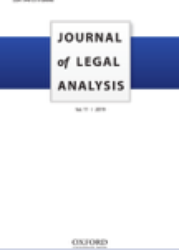
Full reference: Luguri, J. and Strahilevitz, L. J., Shining a Light on Dark Patterns, Journal of Legal Analysis, Vol. 13, Issue 1, 2021, 67p.
Sciences Po's students can read this article via Sciences Po's Drive in the folder MAFR - Regulation & Compliance.
March 24, 2021
Compliance: at the moment

March 23, 2021
Thesaurus : Soft Law
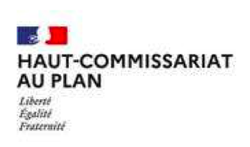
Full reference: Bayrou, F., Electricité: le devoir de lucidité (Electricity: the duty of lucidity), note n°4 from the Haut-Commissariat au Plan (French government planification agency), 23rd of March 2021, 37 p.
Read the note (in French)
Read the summary of the note done by the Haut-Commissariat au Plan on is official website (in French)
March 18, 2021
Thesaurus : Doctrine
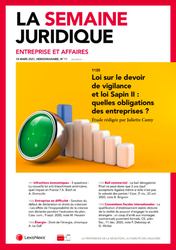
March 17, 2021
Thesaurus : 02. Cour de cassation
March 17, 2021
Conferences

 Full reference : Frison-Roche, M.-A., The Potential of Compliance Law (Les potentialités du Droit de la Compliance), conference given to Muriel Fabre-Magnan's students, Paris I, 17th of March 2021.
Full reference : Frison-Roche, M.-A., The Potential of Compliance Law (Les potentialités du Droit de la Compliance), conference given to Muriel Fabre-Magnan's students, Paris I, 17th of March 2021.
_____
This conference has been designed for Paris I's students following a Law cursus, specialized in Law of obligations and especially in Tort Law.
It therefore aims to show the technical content of Compliance Law and what it can become.
It has been followed by a debate with students.
Summary: Compliance Law is a branch of Law in the process of being born. We can be sure of its existence in the French positive Law, through the technical examination of laws called "Sapin 2" (2016) and "Vigilance" (2017). It appears at radically new. It is the reason why it is perceived as an attack, especially from United-States and we rather use legal knowledge to counter it. But if we study the historical reasons of its adoption in the United-States and the "monumental goals", whether they are negative (what should not appear in the future) or positive (what should appear in the future), we can measure that this Law, which is essentially Ex Ante could be the means through which scattered but legitimate public authorities and powerful but illegitimate big firms could ally. Therefore potentially Compliance Law could be the worst, simple tool of obedience (mechanical "conformité") or the best: what through which we could do something face to global problems, like global warming, or what we would accept to look in the face: the care for others.
Read the slides on which this conference was based (in French)
March 10, 2021
Teachings : Banking and Financial Regulatory Law - Semester 2021

Résumé de la dernière leçon : La Compliance, ne serait-ce que par ce terme même, est un mécanisme nouveau dans les systèmes juridiques européens, venant notamment en convergence du Droit de la concurrence, du Droit financier et du Droit du commerce international. L'on considère généralement qu'il provient du Droit financier et du Droit américain, qui développe ainsi d'une façon extraterritoriale ses conceptions juridico-financières.
Est ainsi en train de naître un Droit de la Compliance.
Il pourrait être celui qui disciplinerait l'économie numérique, laquelle croise étroitement l'économie bancaire et financière, qu'elle renouvelle.
Pour en mesurer l'importance et le développement, qui ne font que commencer, le plus probant est de commencer par sa manifestation incontestable en Droit français, à savoir la loi du 9 décembre 2016 de la loi dite "Sapin 2", suivant de peu la loi du 21 juin 2016 sur les abus de marché et suivie de peu par la loi du 27 mars 2017 sur le devoir de vigilance des sociétés donneuses d'ordre.
Revenir aux bases avec le Dictionnaire bilingue du Droit de la Régulation et de la Compliance
Approfondir grâce à la Bibliographie générale du cours de Droit de la Régulation bancaire et financière
Revenir au plan général du cours de Droit de la Régulation bancaire et financière
Revenir à la présentation générale du cours de Droit de la Régulation bancaire et financière
Parcourir les billets quotidiens d'actualité sur la Compliance.
Utiliser les matériaux ci-dessous pour aller plus loin et préparer votre conférence de méthode:
March 9, 2021
Compliance: at the moment

March 5, 2021
Hearings by a Committee or Public organisation

🌐suivre Marie-Anne Frison-Roche sur LinkedIn
🌐s'abonner à la Newsletter MAFR Regulation, Compliance, Law
____
► Référence complète : M.-A. Frison-Roche, "Appliquer la notion de "Raison d'être" à la profession du Notariat", audition par le Conseil supérieur du notariat (CSN), 5 mars 2021.
____
🔴trois ans plus tard, cette démonstration fût reprise et approfondie dans une audition devant le Conseil Supérieur du Notariat à propos de la Compliance, sur laquelle un rapport était élaboré, les notions de raison d'être et de compliance étant intimement corrélées comme cela est montré ci-dessous : consulter la présentation de l'audition de 2024..
____
Résumé de l'intervention débutant l'audition : L'on peut prendre "raison d'être" dans son sens courant et dans son sens plus juridique. Dans son sens courant, il est bien difficile de déterminer ce qu'est une "raison d'être". Le plus souvent on ne le traduit pas, en anglais on dira purpose , c'est-à-dire ce qui caractérise l'être humain par rapport à la machine, comme le souligna Alain Supiot, tandis que la langue japonaise le traduit comme Ikigaï, ce qui va animer la personne. L'on sent bien que le souffle de l'esprit passe dans cette notion, qui anime la personne, la porte dans une action qui ne sera pas mécanique, qui va la dépasser elle-même, la fait tout à la fois se distinguer des autres et se rapprocher de ses alter ego....
Mais le Droit a transformé cette notion, si proche de l'éthique, voire de l'art, par laquelle l'individu est "transporté dans le temps par une action partagée avec quelque uns, en un "conception juridique". Cette expression de "raison d'être" est aujourd'hui estampillée par le Droit. A travers une vision renouvelée de l'Entreprise, désormais portée par la législation. En tant qu'une entreprise, selon une définition fortement développée par Alain Supiot est un "projet commun" qui vise une action commune concrétisant un projet conçu ensemble pour être réalisé dans le futur, l'organisation et les moyens n'étant que le reflet de cela. Dans cette définition de l'entreprise, centrée sur la "raison d'être", l'organisation, les moyens, les pouvoirs et les droits de chacun, les rouages internes et les intérêts extérieurs ne sont pas premiers, ils sont totalement imprégnés par cette "raison d'être". Dire la raison d'être, l'affirmer et savoir précisément ce qu'elle est dessine la régime applicable. C'est pourquoi la "raison d'être" a changé en 2019 le Droit des sociétés et le Droit financier.
Elle fût d'abord adoptée par le rapport que Nicole Notat et Dominique Senard remirent le 9 mars 2018 au Ministre de l'Economie et des Finances en réponse à la question posée par celui-ci : l'entreprise peut-elle contribuer à l'intérêt général ? Et la réponse tînt dans cette expression-là : pourquoi pas, si c'est la "raison d'être" de l'entreprise que de s'arracher à la seule préoccupation de se développer afin de devenir toujours plus riche, d'avoir aussi un projet qui inclut le souci d'autrui, d'un autrui qui n'ait pas pour seul souci l'appât du gain, d'avoir le souci d'un intérêt autre (les autres visant pour les auteurs de ce rapport "l'intérêt collectif" et non plus l'intérêt général), par exemple l'intérêt de la Terre, dont la temporalité excède celle de la vie humaine, si fortunée soit cette vie de l'actionnaire et si somptueuse soit la tombe de celui-ci.
La "raison d'être" est donc une notion juridique. A ce titre le Droit des sociétés a changé et l'on en rend les mandataires sociaux responsables : ils doivent montrer qu'ils ont pris en charge d'autres intérêts. L'article 1833 du Code civil a été modifié dans ce sens. Pour pouvoir remplir les nouvelles obligations qu'engendre l'évolution de leur mandat fiduciaire, cela justifie un élargissement de leur "pouvoir" car il est plus difficile encore de faire le bien d'autrui en plus de que rendre riche les associés. Si en plus il faut se soucier de l'environnement et de l'égalité entre les femmes et les hommes ... Les études pleuvent non seulement sur la pertinence managériale et financière de l'approche (plutôt favorable) mais encore juridique (par exemple lorsqu'il y a une offre publique, l'offreur devrait-il démontrer qu'il ferait plus que le bonheur des investisseurs en se saisissant du contrôle de la société-cible ?).
Parle de "raison d'être", c'est donc appliquer un régime juridique à une organisation. Il est fructueux de prendre l'expression au sérieux, c'est-à-dire au pied de sa lettre juridique, car si le Droit est toujours ancré dans le langage courant, les mots gagnent souvent en rigueur et précision par leur entrée dans l'espace juridique. Dans le Droit des sociétés, on a pu critiquer la notion en tant qu'elle diluait la notion d'intérêt social dans de l'insécurité juridique, mais cela permet aussi à l'organisation en cause d'avoir plus de liberté pour poser par sa volonté propre ce pour quoi elle consacre ses prérogatives. Puisque c'est l'entreprise elle-même qui va pose publiquement quelle est sa "raison d'être" (comme elle a posé son objet social)
La "raison d'être" a été conçue pour une "entreprise", pour laquelle la "personnalité morale" a été définie comme n'étant qu'un instrument juridique qui lui permet d'accéder au commerce juridique, selon l'acception retenue par le rapport Notat-Senard. Le Droit va donc vers de plus en plus de "réalisme".
Le notariat se prête particulièrement bien à la notion juridique de "raison d'être". Pour trois raisons. En premier lieu, parce que le Notariat est une profession et que les professions sont des organisations qui sont souvent animées par des projets communs, un esprit commun. C'est même précisément cela que le Droit de la concurrence leur reproche, cette "entente" autour d'une communauté de valeurs, cristallisée par des règles d'organisation (même si l'évolution de ce Droit dans le bon accueil de l'organisation des "groupes de sociétés", notamment face à un appel d'offre montre que cette branche du Droit évolue).
En deuxième lieu, une étude notariale est une entreprise. Pourquoi ne pas l'admettre, et même prendre appui sur cela ? Parce que le Droit des sociétés a si fortement évolué avec la loi Pacte, l'on pourrait considérer que structurellement une étude notariale est une "entreprise à mission". Ce qui doit conduire la profession à étudier de très près ce statut emprunté au Droit britannique, droit incontestablement libéral qui conçoit qu'une entreprise se développe et fasse un chiffre d'affaires, mais pas que.
En troisième lieu, les entreprises à mission se développent dans une architecture institutionnelle par laquelle elles doivent donner à voir l'effectivité de la concrétisation de leur mission. Il a donc deux impératifs : dire exactement quelle est cette mission en amont et donner à voir à tous (et pas seulement à l'Etat) que cette mission, qui justifie de s'écarter du Droit commun de la rencontrer de l'offre et de la demande) est remplie : cela est confiée à la "profession", cadre institutionnel indispensable qui exerce un contrôle permanent (et non pas des contrôles ponctuels comme le font les Autorités de concurrence).
Dès lors, si l'on observe que l'étude notariale a une activité économique de service, ce qui est le cas, elle est légitime comme toute entreprise à avoir une "raison d'être", voire à être une "entreprise à mission". Si en outre, elle appartient à une "profession", elle est alors imprégnée de la "raison d'être" de celle-ci, ce qui n'entame pas sa nature d'entreprise (I). Les professions ne se ressemblant pas et la "raison d'être" donnant à chacun son identité, il convient de prendre au sérieux celle du Notariat pour en tirer à l'avenir les conséquences techniques (II).
Lire le plan de l'intervention ci-dessous.
Feb. 24, 2021
Thesaurus : Jurisprudence
Full reference: Autorité de Contrôle Prudentiel et de Résolution (French Banking Regulator), Commission des sanctions (Commission of sanctions), 24th of February 2021, ING Bank France, procedure n°2020-02
Read the decision (in French)
In this decision, the ACPR Sanctions Commission condemns IGN Bank France to a reprimand and a financial penalty of 3 million euros because of the inadequacy of its measures to fight corruption, money laundering and financing of terrorism.
Extract from the decision summarizing ING France's breaches of its Compliance obligations to fight against corruption, money laundering and financing of terrorism:
"At the time of the on-site check, ING France's risk classification was incomplete and ineffective (grievance 1) and its system for monitoring its business relations (complaint 2) and their operations (grievance 4) presented serious deficiencies, as well as its organization and procedures for fund transfers (grievance 3). The updating of customer knowledge was insufficient (grievance 5), as were the detection of PEPs and the implementation of measures due diligence for this category of clientele (grievance 6). For the implementation of its due diligence obligations, numerous shortcomings were noted, whether these were breaches of the obligation to carry out a reinforced examination (grievance 7) or breaches of the obligation to send Tracfin a DS, initial (grievance 8) or additional (grievance 9). Finally, the detection of persons subject to an asset freezing measure was not fully effective (grievance 10) " (our translation of the decision which is only available in French).